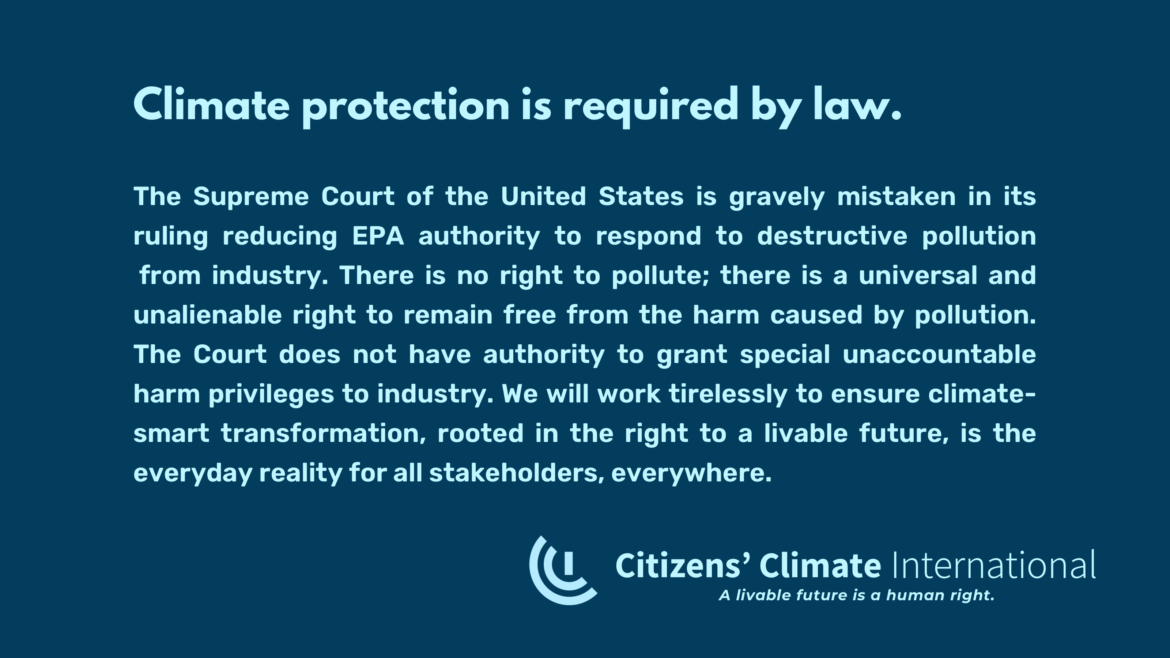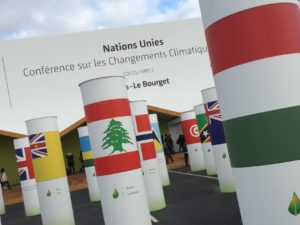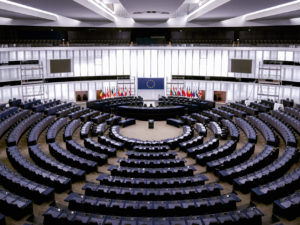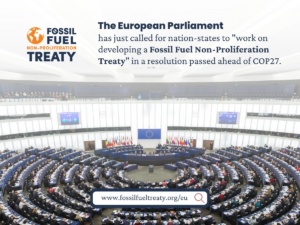
The Supreme Court of the United States is gravely mistaken in its ruling reducing EPA authority to respond to destructive pollution from industry. There is no right to pollute; there is a universal and unalienable right to remain free from the harm caused by pollution.
The Preamble to the Constitution of the United States conditions the use of public office to “establish Justice, insure domestic Tranquility, provide for the common defence, promote the general Welfare, and secure the Blessings of Liberty to ourselves and our Posterity”. Reducing global heating pollution, to protect human beings now and in the future from the ravages of unchecked climate breakdown, is clearly in line with this foundational purpose.
The Fourth Amendment to the Constitution guarantees all Americans the right “to be secure in their persons”. The Fifth and Fourteenth Amendments prohibit public authorities, including judges, from depriving anyone of “life, liberty or property without due process of law”. The Fourteenth requires “equal protection” for all people. The Ninth Amendment reminds the Justices that rights not specifically written into the Constitution, such as the right to remain free from the harm caused by global heating pollution, are still rights and they are still protected by the Constitution.
Carbon dioxide and other global heating pollutants are dangerous and destructive pollutants that directly and indirectly, and with compounding effects, impose grievous and irreparable harm on innocent third parties. There is no scientific or lawful way to argue otherwise.
We must also remember that under Article VI of the Constitution of the United States, the 1992 United Nations Framework Convention on Climate Change, including its core mandate to “prevent dangerous anthropogenic interference with the climate system”, is “the supreme Law of the Land”—in other words: Constitutionally binding law. Chief Justice Roberts is right to suggest Congress should act, but to “presume” this is imminent, when for 30 years Congress has not taken sufficient action, does not stand up to legal, moral, or common-sense scrutiny.
The American people recognize this; the Court is off-base legally and in terms of its professed deference to electoral politics.
In its majority opinion in West Virginia v. EPA, the Court is taking action that degrades the protection of basic rights, degrades the nation’s ability to address the most sweeping and costly crisis it now faces, and degrades the nation’s credibility and clout in international affairs. These effects of the Court’s decision are real, negatively impact Americans’ experience and prospects, and add to the crisis of legitimacy created by recent rulings limiting the protection of human rights, everyday safety, and basic freedoms.
We reiterate here, because unfortunately this universal principle is not yet the operative governing standard:
There is no right to pollute; there is a universal and unalienable right to remain free from the harm caused by pollution.
The Supreme Court of the United States does not have authority to grant special unaccountable harm privileges to industry. We will work tirelessly to ensure climate-smart transformation, rooted in the right to a livable future, is the everyday reality for all stakeholders, everywhere.








